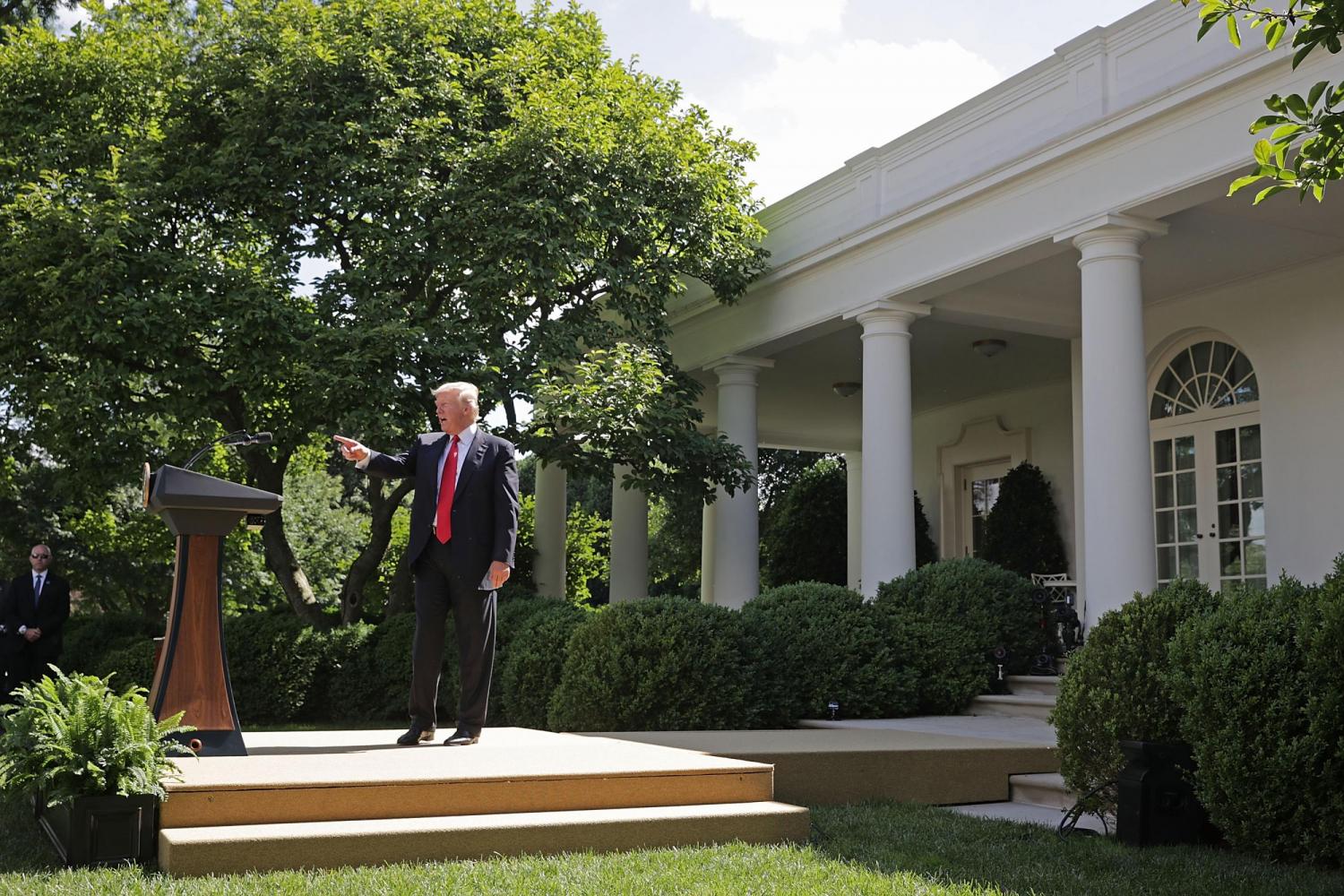Trump Pulls US out of Paris Climate Agreement
June 8, 2017
On Thursday, June 1st, 2017, President Trump made a momentous decision on the state of climate affairs, when he chose to withdraw the U.S. out of the Paris climate accords. Fulfilling one of his campaign promises, Trump’s decision will make global efforts to decrease global warming much more difficult.
But what exactly is the Paris Climate Accord? In December of 2015, representatives from nearly 200 nations around the globe made a historical pact in Paris, in which they agreed to cut down climate change emissions, adopt green energy sources and limit global temperature rises, in addition to cooperation in coping with the effects of irreversible climate change. The ambitious main goal of the agreement is to limit the rise of global average temperature to two degrees Celsuis compared to pre-industrial times, and aiming to keep below a 1.5 degree increase, as small island nations would be devastated by higher sea levels caused by even a two degree shift. Additionally, $100 billion is to be provided by the developed world to help developing countries shift from fossil fuels to more environmentally friendly sources of energy and adapt to the already visible effects of climate change. The 2015 agreement was an immediate pledge from the involved nations, but long-term plans do not have to be submitted until 2020. Although 195 signatories committed to the climate deal in 2015, at least 55 nations accounting for at least 55% of total greenhouse gas emissions needed to formally approve the pact before it went into effect, which was achieved in October of 2016.
When Trump announced his withdrawal during a news conference on Thursday, he asserted that his decision was part of his campaign promises to put America and its workers first. According to Mr. Trump, “Our withdrawal from the agreement represents a reassertion of American workers’ sovereignty.” However, he added that the United States would negotiate to re-enter the Paris Agreement of a similar deal that would be a better deal for American workers. As he put it,”The agreement is a massive redistribution of United States’ wealth to other countries. It’s to give their country an economic edge over the United States. That’s not going to happen while I’m president.” He continued his criticism of the pact, singling out China and India by saying, “I cannot in good conscience support a deal that punishes the United States, which is what it does, while imposing no meaningful obligations on the world’s leading polluters.” It is obvious that his administration is primarily interested in the economy rather than the environmental, as shown with EPA head Scott Pruitt denying climate change, and the roll-backs on many of Obama’s environmental regulations, in favor of policies Trump believes will keep more jobs in America and help the economy.
This decision has been enormously controversial, with many world leaders and business figures slamming Trump for his choice. One prominent example is Elon Musk, chief executive of the electric vehicle maker Tesla, who has resigned from presidential advisory councils following the Paris Accord withdrawal. Newly elected French president Emmanuel Macron was also unhappy with the decision, offering refuge to American climate scientists in France, and calling to, “Make our planet great again.” With three quarters of the world committed to the accord and only Syria and Nicaragua completely rejecting it, the United States has become part of the minority. America’s exit from the accord has huge ramifications, from incentivizing other countries to be less willing to fulfill their end of the deal, and threatening the monetary aid for developing countries. Meanwhile, leaders from France, Germany, Italy, Canada, China and many other nations will remain dedicated to the environmental threats the climate pact seeks to alleviate.



